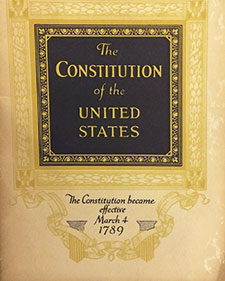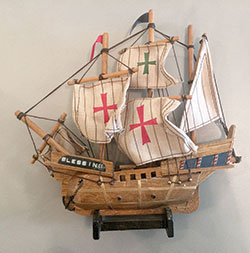
Eagle Feathers #208 – Independence Day
By Bob (Monty) Doherty
The importance of the 4th of July in Massachusetts and Somerville’s history predates:
• the signing of the Constitution
• the raising of American’s first flag, the Grand Union, on historic Prospect Hill
• the beginning of the Revolutionary War
*
 *
*
Massachusetts was the first state to make July 4th a state holiday. John Adams, our first Vice President and second President, originally promoted the tradition of firework celebrations on Independence Day. He died on the fourth of July, 1826, within hours of President Thomas Jefferson’s death. The two had signed the Constitution exactly fifty years earlier.
*
 *
*
Somerville was part of Charlestown and her history until 1842. The most accurate account in early writings places the arrival of English Captain Thomas Graves, a Charlestown engineer and street planner, as the date of Charlestown’s founding. She was born on the fourth of July, 1629.
*
 *
*
Three years later on July 4, 1631, Governor John Winthrop launched the first ship built in Massachusetts into the Mystic River. Christened “The Blessing of the Bay,” she was used for exploration, commerce and expansion of the Bay State. Other Massachusetts built ships later followed her; and when pirates attacked those ships, the Blessing was armed and sent out to protect them. Thus, she became the first Coast Guard vessel and the progenitor of the United States Navy. Who knew the day of the launching at Ten Hills and the derivation of Somerville from Charlestown would be so significant in American history.
*
 *
*
The American Civil War, the conflict that almost tore our nation apart, was decided in the little town of Gettysburg, Pennsylvania in 1863. The battle was fought over three days, resulting in more losses than any other during the four-year war. There were over 50,000 casualties. The soldiers of both the North and South, while dressed in woolen uniforms, fought in temperatures that rose to almost 90°. General Robert E. Lee lost 30 percent of his army and had to retreat the following day. This was the same day that the fortress at Vicksburg, Mississippi fell to Union General Ulysses S. Grant. When the cannons went silent, it was the Fourth of July – a glorious day for the Union!















Reader Comments